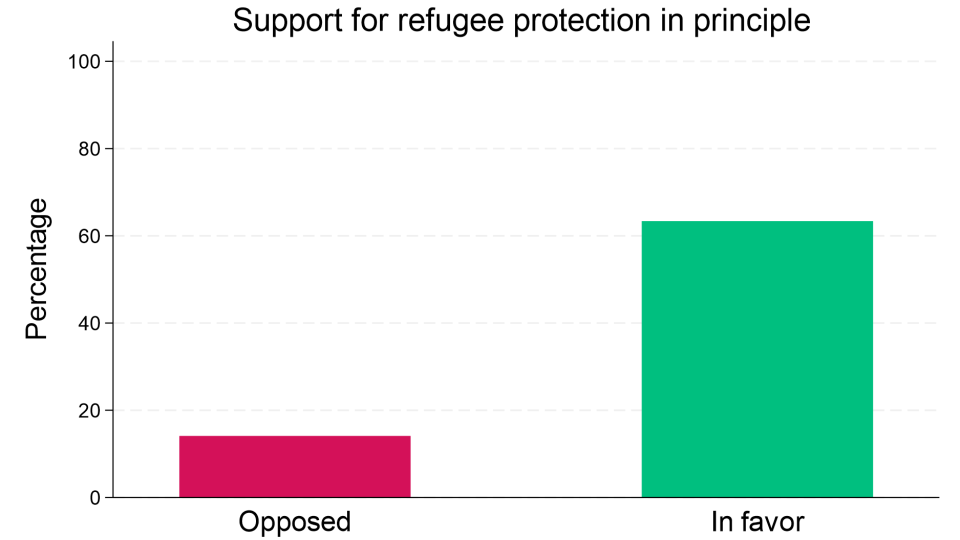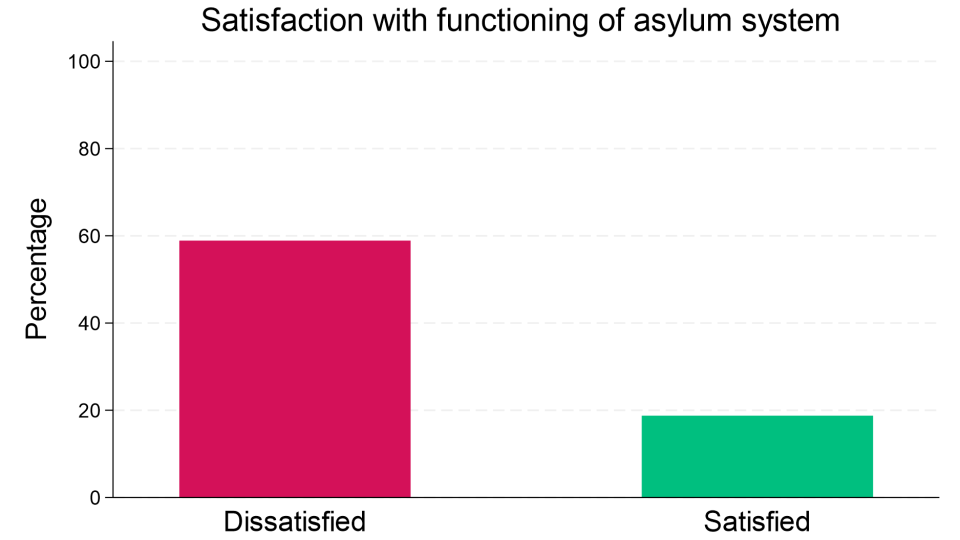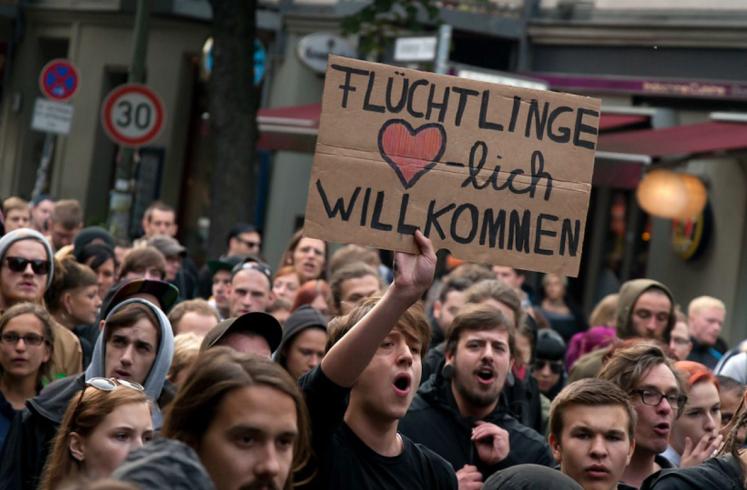The International Day of Human Fraternity offers a valuable opportunity to reflect on what unites, rather than divides, societies. One of the most severe wedge issues in many countries is asylum immigration, with Germany being a prominent example as the biggest European host country. In this blog post, we discuss a policy reform idea with a surprisingly large potential to bring people together on this issue.
After a decade of historically high levels of asylum immigration, Germany is trying to figure out what to do next. Despite initial waves of solidarity in 2015 and 2022, opposition to the admission of asylum seekers has surged, resulting in electoral successes of parties that promise to be strict on migration. Even the more progressive outgoing government has adopted a rather restrictive stance on asylum migration, driven by a public that, according to a poll from September last year, regards migration and refugees as the most important policy issue, with 77 percent demanding a “turnaround” in Germany’s refugee policies. However, it would be misguided to believe that the widespread dissatisfaction with the status quo implies a high degree of consensus on what to do with this issue. To the contrary, a recent Mercator study found that immigration is the most polarising policy issue alongside climate change (Herold et al., 2023). This puts policymakers in a particularly tough spot.
Against this backdrop, migration experts such as Ruud Koopmans and Gerald Knaus have advocated for “regularizing” refugee protection, meaning that legal pathways for displaced populations should be expanded while irregular (or illegal) routes should be closed. This implies that asylum seekers who set foot on European soil irregularly would be transferred to so-called “safe third countries” outside the European Union where they can apply for asylum and, if recognized, find protection. At the same time, the proposal calls for a large-scale expansion of resettlement programs for already recognized refugees in crisis regions.
We think that the strong resistance, specifically to asylum immigration, is not rooted in its humanitarian nature but rather in its close association with irregular immigration. With data from a large-scale survey experiment conducted in Germany in December 2024, we contrasted people’s acceptance for the provision of refugee protection in principal with their attitudes toward the functioning of the existing asylum system. The results are almost a mirror image: The majority are in favour of refugee protection with only 14 % expressing their fundamental opposition (1). Conversely, those dissatisfied with the status quo are more than three times as high as those who approved. When exposed to the mentioned regularization proposal, respondents reacted quite positively with 59 % expressing positive views, compared to only 12 % opposing it. Further 44 % said that a hypothetical implementation of this reform would increase their acceptance for refugee protection, only 7 % stated the opposite.


Besides the positive assessment of the policy proposal in the overall sample, views are similar across different populations, some of which are typically known to drive the polarisation on migration issues. For example, the divide between East and West Germany is frequently problematised. However, there is no significant difference in the opinions of West and East Germans on this question. Respondents with and without a university degree make virtually the same assessment. Supporters of the Social Democrats (SPD) and the Greens (Bündnis 90 / Die Grünen), the remaining parties of the outgoing “traffic light coalition” as well as supporters of the opposition parties CDU (conservative) and Die Linke (far left) express highly similar views on this proposal. Respondents with sympathies for the liberal party (FDP) are particularly favourable. While the evaluations of the policy are somewhat more negative among respondents leaning towards the right radical AfD party, we find many more reform supporters (49%) than opponents (22%).

Additionally, the most restrictive asylum regime, consisting of the implementation of safe third country agreements without an expansion of resettlement, was not preferred. While policy packages without safe third country agreements were significantly less popular, the best rated option was a combination of such agreements with an expansion of resettlement. Moreover, Germans seem to care about the features of third countries to which asylum seekers would be sent. Transferring people to countries with human rights violations was not supported relative to policy sets requiring human rights compliance. Finally, regularizing refugee protection may also improve solidarity towards refugees after arrival. While opposition towards granting full access to welfare services to all asylum seekers and refugees is strong, an indiscriminate restriction of welfare access is less popular than a policy that distinguishes between those that immigrated legally (full access) and those who did not (restricted access). Once again, these preferences show a high degree of homogeneity across geographical, educational and party lines, showing a real possibility for unifying policymaking.
Prior research has shown that people hold ambivalent views towards humanitarian migration (Jeannet et al., 2021), balancing a desire to provide humanitarian assistance with national interest related fears. In political terms, this is often expressed as the objective to achieve “Humanity & Order” (Humanität und Ordnung) at the same time. A political push in this direction may therefore help to restore support for refugee protection while at the same time narrowing societal divides.
(1) The remaining percentage, totalling 100 %, represents respondent who were neither in favour, nor opposed. This holds also for the following percentage distributions.
Works cited:
Herold, M., Joachim, J., Otteni, C., & Vorländer, H. (2023). Polarisierung in Deutschland und Europa—Eine Studie zu gesellschaftlichen Spaltungstendenzen in zehn europäischen Ländern. Mercator Forum Migration und Demokratie (MIDEM). https://www.stiftung-mercator.de/de/publikationen/polarisierung-in-deutschland-und-europa/
Jeannet, A.-M., Heidland, T., & Ruhs, M. (2021). What asylum and refugee policies do Europeans want? Evidence from a cross-national conjoint experiment. European Union Politics, 22(3), 353–376. https://doi.org/10.1177/14651165211006838
Suggested citation: Tobias Hillenbrand, Prof. Dr. Melissa Siegel. "Reforms welcome?! This is where Germans agree on refugee and asylum migration," United Nations University, UNU-MERIT, 2025-02-04, https://unu.edu/merit/article/reforms-welcome-where-germans-agree-refugee-and-asylum-migration.


